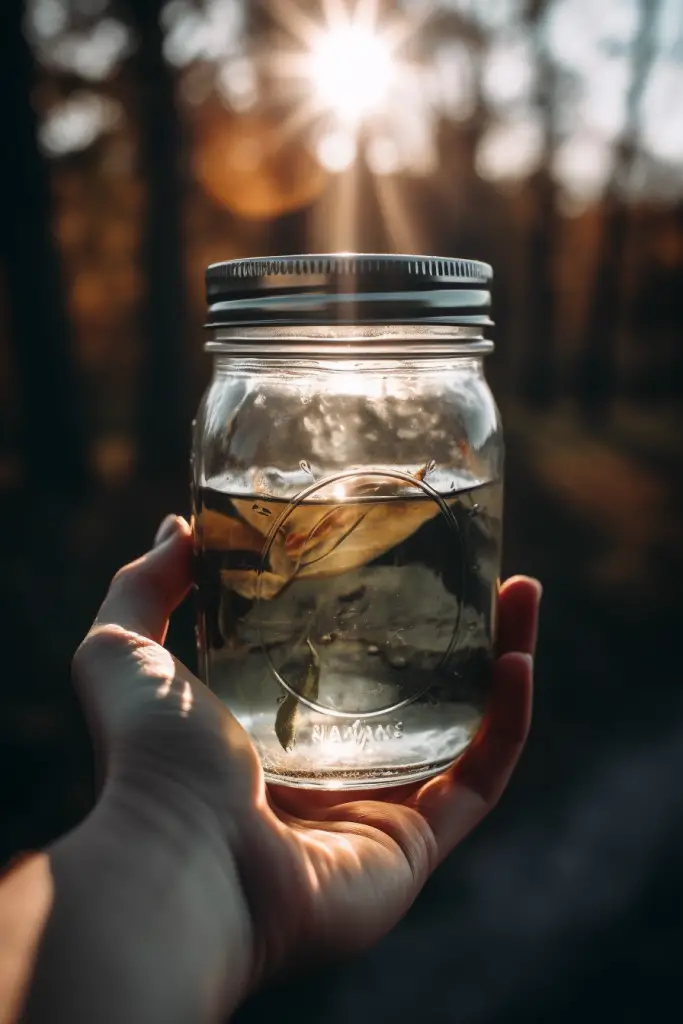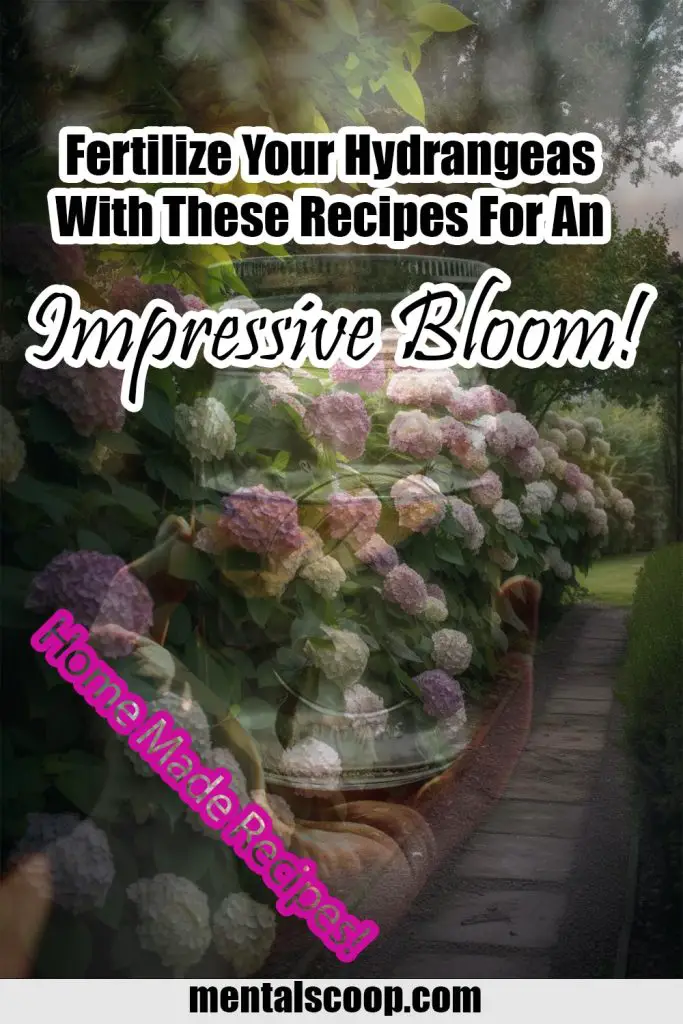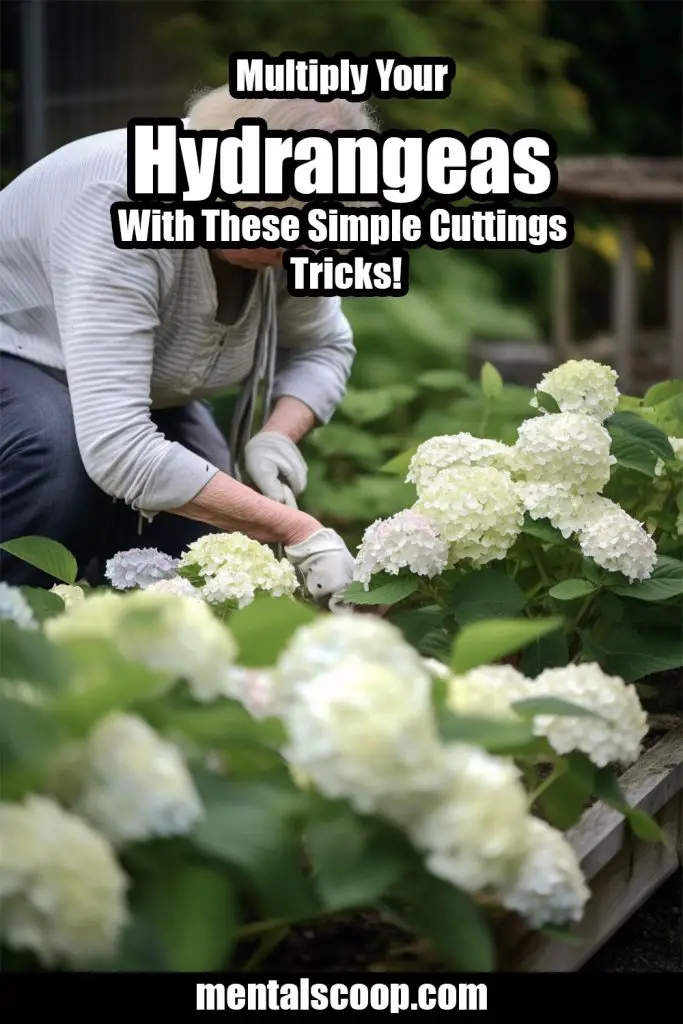
Hydrangeas are beautiful and popular flowering plants that require specific care to thrive. One of the critical factors in the health of hydrangeas is the quality of the soil they grow in. Hydrangeas need nutrient-rich soil to produce vibrant blooms.
This is where homemade hydrangea fertilizer comes in. In this article, we will discuss how to make hydrangea fertilizer using natural ingredients that are easy to find.
Before we dive into the process of making hydrangea fertilizer, let’s briefly discuss the nutritional requirements of hydrangeas. Hydrangeas require nutrients like nitrogen, phosphorus, and potassium to grow and bloom.
Nitrogen promotes vegetative growth, while phosphorus helps with flower formation, and potassium improves the overall health of the plant. Hydrangeas also require trace elements like iron, magnesium, and calcium for proper growth.
With this in mind, let’s take a look at some easy-to-make hydrangea fertilizers:
Epsom Salt Fertilizer
Epsom salt is a great source of magnesium, an essential nutrient for hydrangeas. To make this fertilizer, dissolve 1 tablespoon of Epsom salt in 1 gallon of water. Water your hydrangeas with this solution once a month during the growing season.
Coffee Ground Fertilizer
Coffee grounds are a great source of nitrogen, an essential nutrient for hydrangeas. To make this fertilizer, mix 2 cups of used coffee grounds with 5 gallons of water. Allow the mixture to sit for a few days, then strain the liquid and use it to water your hydrangeas.
Banana Peel Fertilizer
Banana peels are rich in potassium, an essential nutrient for hydrangeas. To make this fertilizer, chop up 2-3 banana peels and bury them near the base of your hydrangea plant. As the banana peels decompose, they release potassium into the soil.
Fish Emulsion Fertilizer
Fish emulsion is a great source of nitrogen and trace elements, making it an ideal fertilizer for hydrangeas. To make this fertilizer, mix 1 tablespoon of fish emulsion with 1 gallon of water. Water your hydrangeas with this solution once a month during the growing season.
Homemade Compost
Homemade compost is an excellent source of nutrients for hydrangeas. To make this fertilizer, collect kitchen scraps, yard waste, and other organic materials and place them in a compost bin. Allow the materials to decompose for several months, stirring occasionally. Once the compost is ready, mix it with the soil around your hydrangea plants.
In addition to these natural fertilizers, you can also use commercial fertilizers specifically formulated for hydrangeas. When choosing a commercial fertilizer, look for one with a high phosphorus content. Phosphorus is essential for flower formation and will help your hydrangeas produce more blooms.
Now that we’ve covered the various types of hydrangea fertilizers, let’s discuss how to apply them:
Timing
The best time to fertilize hydrangeas is in the spring, just before new growth appears. This will give your hydrangeas a boost of nutrients they need for the growing season. Avoid fertilizing your hydrangeas in the fall, as this can promote new growth that may not have time to harden off before winter.
Application
When applying fertilizer, it’s essential to follow the instructions carefully. Over-fertilizing can damage your hydrangeas and cause them to produce fewer blooms. Always dilute the fertilizer according to the instructions and apply it evenly around the base of the plant. Be sure to water the plant thoroughly after applying the fertilizer to help it absorb the nutrients.
Frequency
The frequency of fertilizing your hydrangeas will depend on the type of fertilizer you are using. Homemade fertilizers can be applied once a month during the growing season, while commercial fertilizers may only need to be applied once or twice a year.
It’s important to monitor your hydrangeas after fertilizing them to ensure they are not showing signs of over-fertilization. Signs of over-fertilization include burnt or yellow leaves, stunted growth, and fewer blooms.

More interesting articles you may be interested in reading:

How To Remove A Tree Stump Painlessly
10 Vital Home Maintenance Tasks You’ll Regret If You Forget
See How Much Propane Is Left In A Tank With No Gauge
Thanks for reading and be sure to share this info with your friends using the social share buttons below.
Talking about social stuff, consider liking our Facebook page to keep up to date with our articles. Check out our other articles for more mental scoops!
